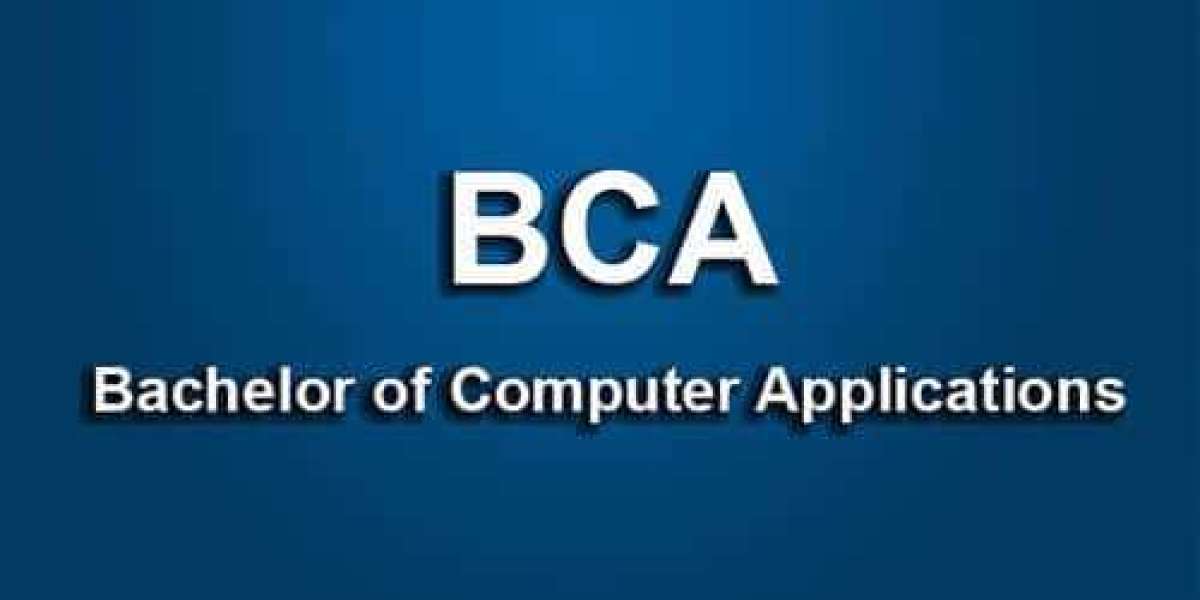Starting a Bachelor of Computer Applications (BCA) program can be both exciting and challenging. As a first-year student, you are stepping into a world that combines theoretical concepts with practical applications in the IT field. With the right strategies, you can make the most of this critical period and set a strong foundation for your academic and professional journey. Here, we’ll explore essential tips and tricks to help you navigate your first year in a BCA program successfully.
Understanding the BCA Program
The BCA full form is Bachelor of Computer Applications. It is a three-year undergraduate program designed to provide students with a solid foundation in computer science and applications. The first year is crucial because it introduces you to core subjects like programming, databases, and networking, while helping you develop problem-solving skills.
Key Tips for Your First Year in a BCA Program
1. Get Familiar with the Curriculum
The BCA curriculum is structured to cover both theoretical knowledge and practical skills. In your first year, you’ll likely study subjects such as:
- Fundamentals of Information Technology
- Programming Languages (e.g., C, Python)
- Mathematics for Computing
- Basic Web Development
Understanding the syllabus early on helps you plan and prioritize your studies effectively.
2. Develop Strong Programming Skills
Programming is the backbone of the BCA program. Start with the basics of languages like C or Python and focus on writing clean, efficient code. Some tips include:
- Practice daily on platforms like HackerRank or LeetCode.
- Build small projects to apply what you’ve learned.
- Seek help from peers or faculty when concepts are unclear.
3. Time Management is Key
Balancing coursework, assignments, and personal life can be challenging. Use these strategies to manage your time effectively:
- Create a daily or weekly schedule.
- Break tasks into smaller chunks to avoid last-minute stress.
- Use tools like Trello or Notion for task tracking.
4. Utilize College Resources
Most colleges offering a BCA program provide a wealth of resources, including:
- Libraries with reference books for programming and IT.
- Computer labs for hands-on experience.
- Workshops or seminars on emerging technologies.
Make full use of these resources to enhance your understanding and skills.
5. Network with Peers and Seniors
Building connections with classmates and seniors can provide valuable guidance. Seniors, in particular, can:
- Share their experiences and study materials.
- Offer advice on handling academic challenges.
- Introduce you to extracurricular opportunities.
6. Join Clubs and Activities
Many colleges have coding clubs, tech fests, and other extracurricular activities related to IT and computing. Participating in these activities can:
- Enhance your technical skills.
- Provide a platform to showcase your talents.
- Help you build a well-rounded profile for internships and jobs.
7. Stay Updated on Industry Trends
The IT industry evolves rapidly. As a BCA student, staying informed about the latest technologies and trends, such as Artificial Intelligence, Cloud Computing, and Cybersecurity, will give you a competitive edge. Follow blogs, podcasts, and news platforms to stay updated.
8. Seek Guidance from Faculty
Your professors and lecturers are there to help you succeed. Don’t hesitate to ask questions, whether during lectures or office hours. Their insights can help you grasp difficult concepts and navigate academic challenges.
9. Prepare for Future Opportunities
While it may seem early, start thinking about your long-term goals. Decide whether you want to pursue:
- Higher education, such as an MCA (Master of Computer Applications).
- Certifications in specific domains like data analytics, cybersecurity, or cloud computing.
- Internships to gain real-world experience.
Common Challenges in the First Year and How to Overcome Them
Managing Academic Pressure
- Prioritize tasks based on deadlines and importance.
- Seek academic counseling if you feel overwhelmed.
Adapting to College Life
- Stay organized and maintain a balanced routine.
- Build a support system with friends and mentors.
Grasping Programming Concepts
- Dedicate extra time to practice coding.
- Use online tutorials and forums like Stack Overflow for additional help.
Conclusion
Your first year in a BCA program sets the tone for the rest of your academic journey. By focusing on time management, leveraging college resources, and honing your programming skills, you can excel in your studies and build a strong foundation for a successful career in IT.
FAQs
Q1: What is the BCA full form, and why is it important?
The BCA full form is Bachelor of Computer Applications. It is essential as it equips students with the knowledge and skills needed for a career in IT and computing.
Q2: How can I improve my programming skills during the first year of BCA?
Practice regularly, work on small projects, and participate in coding challenges to enhance your programming abilities.
Q3: Are internships necessary in the first year of BCA?
While not mandatory, exploring short-term internships can provide valuable exposure and help you apply theoretical concepts practically.
Q4: What certifications can I pursue alongside my BCA program?
You can consider certifications in programming, web development, or cloud computing to strengthen your skillset.
By following these tips and staying proactive, your first year in a BCA program can be a rewarding and transformative experience.








